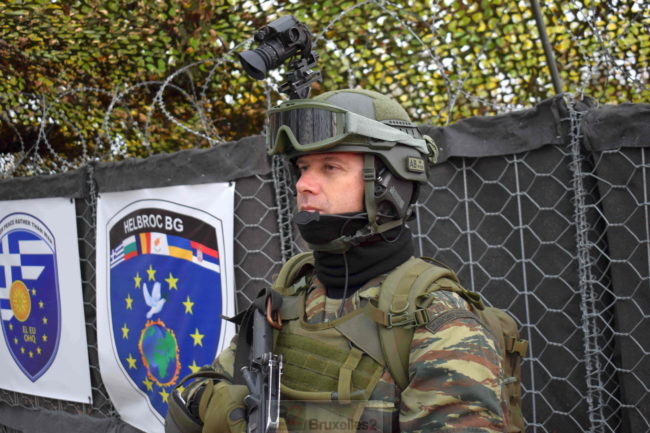Between 2021 and 2023, the EU's rapid reaction force will be absent, every other semester
(B2 - exclusive) If for 2020, the permanence of the EU rapid reaction force is guaranteed from start to finish, then it will be more difficult. The latest planning for EU battlegroups, obtained by B2, shows serious gaps between 2021 and 2023. This is neither up to the ambitions displayed by the Europeans nor to the commitments made under PESCO

A device that beats the wing
The device — which provides for two battle groups tenure per semester, ie four per year — is floundering. And that does not date from today (1). Despite several promises made, Member States are still hesitant to participate in a system that is quite costly in terms of men, and which is not operational. Some countries seem to have completely given up. The Nordics in particular (Sweden, Finland, Ireland) are listed nowhere. And the British departure from the schedule (2) was not really compensated by anyone.
2021 to 2023: semesters without battle group of permanence
In 2021,, so there is only one battle group functional, in the second half, led by Italy as a framework nation, with the Austrians, Croats, Hungarians and Slovenes (Habsburg battlegroup). In the first semester, the schedule remains desperately empty.
Idem in 2022. , where Spain has confirmed its commitment as the framework nation of the battle group of the second half, with the participation of Portugal (Iberian battlegroup). But no country took the permanence in the first half.
In 2023,, Poland will act as framework nation for the first half of 2023, along with the Czech Republic, Hungary and Slovakia (Visegrad battlegroup). While the Greece will lead the second permanent battlegroup for the same period - first half of 2023 - with Bulgaria, Cyprus, Romania and three third countries (Republic of North Macedonia, Serbia and Ukraine) within the Helbroc battlegroup. But there is no permanent staff in the second half.
A slight improvement in 2024 and 2025
In 2024,, France has confirmed its commitment as a framework nation for the battlegroup of the first semester, with Belgium taking part.
Italy will be the framework nation for the battlegroup of the second semester, with the participation of Albania.
A breach of PESCO commitments
This weakness of commitment is not up to the ambitions displayed by the European countries publicly, under the reason that Europe must ensure a role in the world or that it assume its load of the burden in defence. It is also — in our opinion — in total breach of the commitments made under permanent structured cooperation (PESCO), in particular commitment No. 12, on the availability and capacity to deploy forces (3).
Consider other solutions
In view of this difficulty, the solutions nevertheless seem quite simple: systematically extend the period of permanence from six months to one year (4) and give up (except on an optional basis) having a second battle group permanence (5). It would be more realistic...rather than maintaining a 'hollow' concept.
(Nicolas Gros-Verheyde)
Download the battlegroup schedule 2020-2025 updated to December 6
- For 2018-2020, we had seen better commitment from Member States. Read : The new battlegroup calendar. Innovations and unknowns
- Lire: The British come out of the battlegroups. The EU almost without a rapid reaction force in the 2nd half of 2019
- « Contribute substantially to the GTUE by confirming in principle the contributions at least four years in advance, with an alert phase in line with the concept of the GTUE, the obligation to organize exercises for all the forces of the EUWG (for the framework nation) and/or to participate in these exercises (for all Member States participating in the EUWG) (Decision 2017/2315 of December 11, 2017, Annex, OJ L 12 of January 17, 2018, p. 63).
- Like what happened in first half of 2020: the gap had been filled by France, which had extended its commitment for an additional six months.
- Ideas proposed, with a certain common sense, by the military staff of the EU. Read : The four paths of evolution for battlegroups (Grammatico)


